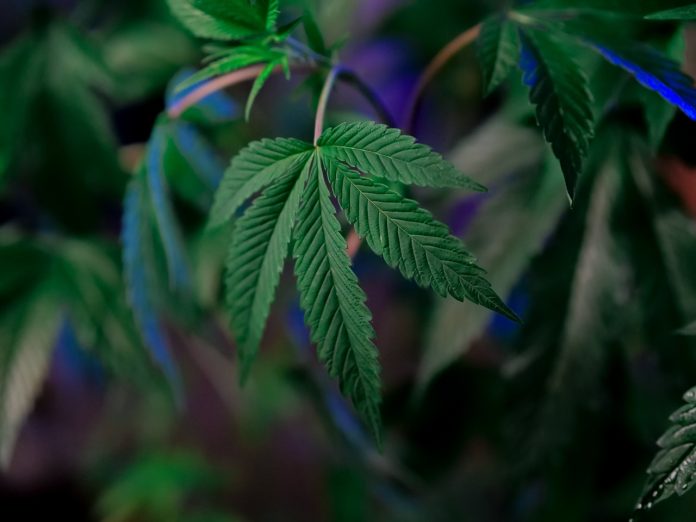A psychoactive cannabinoid called hexahydrocannabinol (HHC) is in hemp and cannabis plants at trace levels. Despite its discovery in the 1940s, the cannabinoid only recently received attention as a psychotropic and therapeutically relevant chemical component. HHC is less popular than other cannabinoids. However, it recently rose in popularity with recent findings that it has similar but less intense effects to THC.
It is possible to use HHC distillate to manufacture various goods, including edibles and tinctures. Natural HHC is in hemp and cannabis, but the amount is minimal. Synthesizing it with CBD from hemp is the best way to concentrate the cannabinoid’s presence in the body.
What Exactly Is HHC?
In the cannabis industry, HHC is shorthand for hexahydrocannabinol. THC is a naturally occurring hydrogenated version of the cannabinoid. This product has no double bond, which makes it less susceptible to oxidation. Because the THC is more difficult to oxidize, HHC has a longer shelf life allowing its products to last longer.
There are minimal levels of HHC found in plants, though detectable. Many of its products contain synthetic ingredients as a result. In this process, either naturally existing THC or CBD turned into THC saturates with hydrogen atoms in hydrogenation.
In the same way that margarine is made from vegetable oils, CBD extract is also hydrogenated. HHC was first synthesized semi-synthetically when Roger Adams hydrogenated Delta-9 THC in 1944. Since then, it has not been examined substantially. The experimentation began again in the 1960s and ’70s.
Manufacturing of HHC Distillate
HHC resulted from using modern chemical chemistry to synthesize the cannabinoid from CBD. The production of HHC oil is by a process known as hydrogenation. This is the same procedure used to make margarine from vegetable oil in liquid form.
The molecular structure of THC changes by adding hydrogen (the antithesis of oxidation), resulting in HHC distillate. Hydrogen replaces all double bonds in HHC distillate (AKA hydrogenation). Platinum or palladium must be utilized as a catalyst in this procedure. The chemical structure is less vulnerable to oxidation and breakdown when it is saturated (i.e. degradation of THC into CBN).
Using explosive gases (hydrogen) and metal catalysts is exceedingly risky, even though the method is not new. When it comes to maintaining clean, safe products with minimal safety oversight, it is critical to work with an HHC manufacturer who knows the process inside and out.
What Factors Affect the Popularity of HHC Distillate?
HHC’s psychoactive effects are pretty close to those of THC’s. This drug affects visual and auditory perceptual disturbances, heart rate, and body temperature changes, and altered headspace and cognition.
Compared to delta 8 THC, the effects of HHC distillate are often described as similar. However, HHC distillate places a stronger emphasis on relaxation than excitement.
A Sativa, Delta 8 and HHC are hybrids, while Delta 10 is an indica. Delta 9 THC has a somewhat lesser potency than delta 8 THC. However, HHC has a higher potency than delta 8 THC. Further testing is necessary, because it is still a relatively new cannabinoid. However, it appears to have the same therapeutic impact profile as other forms of THC thus far.
Indeed, research conducted on rats shows beta-HHC to be an effective analgesic. Regular users also reported no harmful side effects. Hydrogen atoms replace all double bonds in HHC (AKA hydrogenation).
Potential Benefits
Due to CBD’s growing popularity as a supplement for health and well-being, the market for products containing it is booming, with distillate at the forefront. The public easily ingests the distillate when blended with gummy sweets and other foods and beverages.
CBD distillate research reports successful treatment of anxiety, post-traumatic stress disorder (PTSD), and depression. Because it is non-psychoactive, there is no need to worry about getting high or experiencing any of the other harmful effects associated with THC. This is why it proves to help with sleep.
Is It Legal to Use?
Because of this, HHC falls into a legal grey area like many of the new products that have recently arrived on the market. Since the signing of the Farm Bill into law in 2018, all hemp-derived products that contain less than 0.3 per cent THC are allowable. The final product is also a legal hemp derivative if made from a material extracted from a hemp plant.
Many believe that because it is not THC at all, the legal potential of HHC may be even more significant than that of the Delta strains of the drug. There is still 0.3 per cent of Delta-9 THC in all Delta types. However, there is no 11-hydroxy-THC in HHC since it lacks the same double bond. Furthermore, some jurisdictions already outlawed Delta-8 and Delta-10, while HHC is not subject to the same regulations.
Under the 2018 Farm Bill, HHC appears to be nationally legal. However, some states are more tolerant of psychoactive chemicals than others are. Consider the laws of your state at all times and be careful.
Is It Detectable on a Drug Screen?
HHC may or may not be undetectable in a drug test, but there is no way to know for sure just yet. For the time being, those taking a drug test in the short term are to avoid using HHC products.
Any substance we consume converts into a metabolite in our livers, and drug tests look for specific metabolites. THC’s metabolite, 11-hydroxy-THC, is identifiable using any of the Delta variants that exist. However, according to the idea, HHC does not transform into 11-hydroxy-THC. Hence, it theoretically is unidentifiable by a drug test if taken.
There is no confirmed drug test for HHC yet, because of the infancy of research on the substance. As interest and research in it grow, we may soon have better knowledge of the substance and its effects.
Find a Home-Based Business to Start-Up >>> Hundreds of Business Listings.

















































